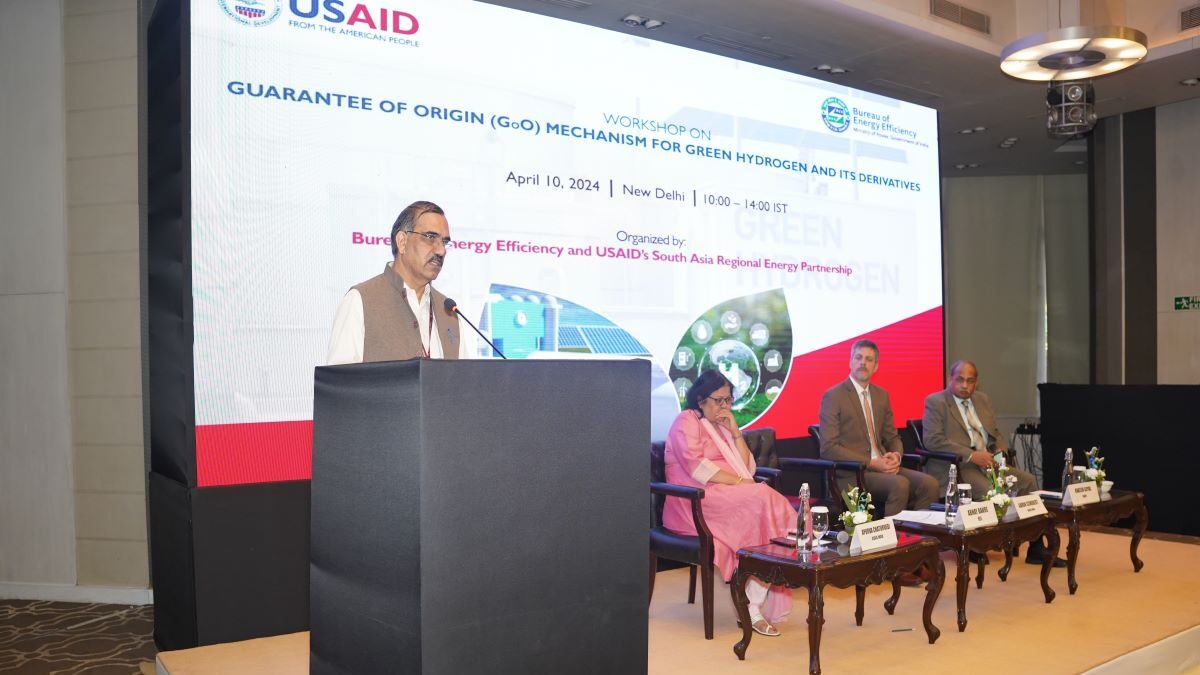Establishing a guiding framework is crucial to facilitate the large-scale deployment of green hydrogen technologies. The first step is to focus on hydrogen production and establish a hydrogen Guarantee of Origin (GoO) scheme. In this context, USAID’s SAREP program, in collaboration with the Bureau of Energy Efficiency (BEE), organized a stakeholder consultation workshop on the ‘Guarantee of Origin Mechanism (GoO) for Green Hydrogen and its Derivatives on April 10, 2024. The main objective of this session was to gather insights from various stakeholders on guidelines for Monitoring, Reporting, and Verification (MRV) of the green attributes of hydrogen. Representatives from government agencies, certification agencies, equipment suppliers, regulators, power generation companies, developers, and end-users of hydrogen participated in the workshop.
During the welcome address, Mr. Abhay Bakre, Director General of the Bureau of Energy Efficiency (BEE), emphasized the importance of building consensus among countries that promote hydrogen as a decarbonization fuel. He also stressed the need to link the scheme with carbon credits, markets, and other mechanisms to improve production methods. He called for a standardized definition and measurement of GoO worldwide to enhance the scheme’s effectiveness and professionalism.
Dr. Sam Bartlett, Director of the Green Hydrogen Organization – GH2, presented on global challenges and highlighted the significance of understanding the needs of customers from various industries to develop the market and establish the credibility of Green Hydrogen as a commodity. He emphasized that the scheme should address both emissions and the Environmental, Social, and Governance (ESG) performance of GH2 projects.
The workshop brought together a diverse group of stakeholders to facilitate focused and productive dialogues within and across sectors. Participants emphasized the necessity of a Guarantee of Origin (GoO) to certify hydrogen products as ‘green,’ which is crucial for global marketing and authentication of hydrogen production. Discussions also centered around the technical intricacies of certifying green hydrogen and the financial constraints hindering sector growth. The dialogue reflected a shared recognition of the urgency to develop a robust green hydrogen sector through collaborative efforts and knowledge exchange.
Overall, the workshop has laid the foundation for the large-scale adoption of green hydrogen technologies, highlighting the importance of initially focusing on hydrogen production to establish a hydrogen GoO scheme in a timely manner.
Agenda:


